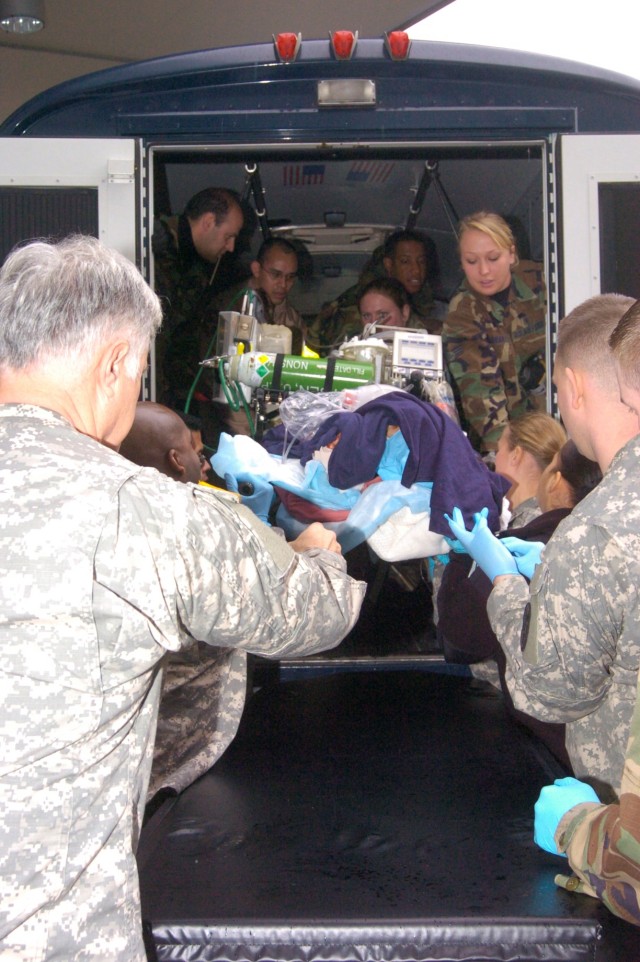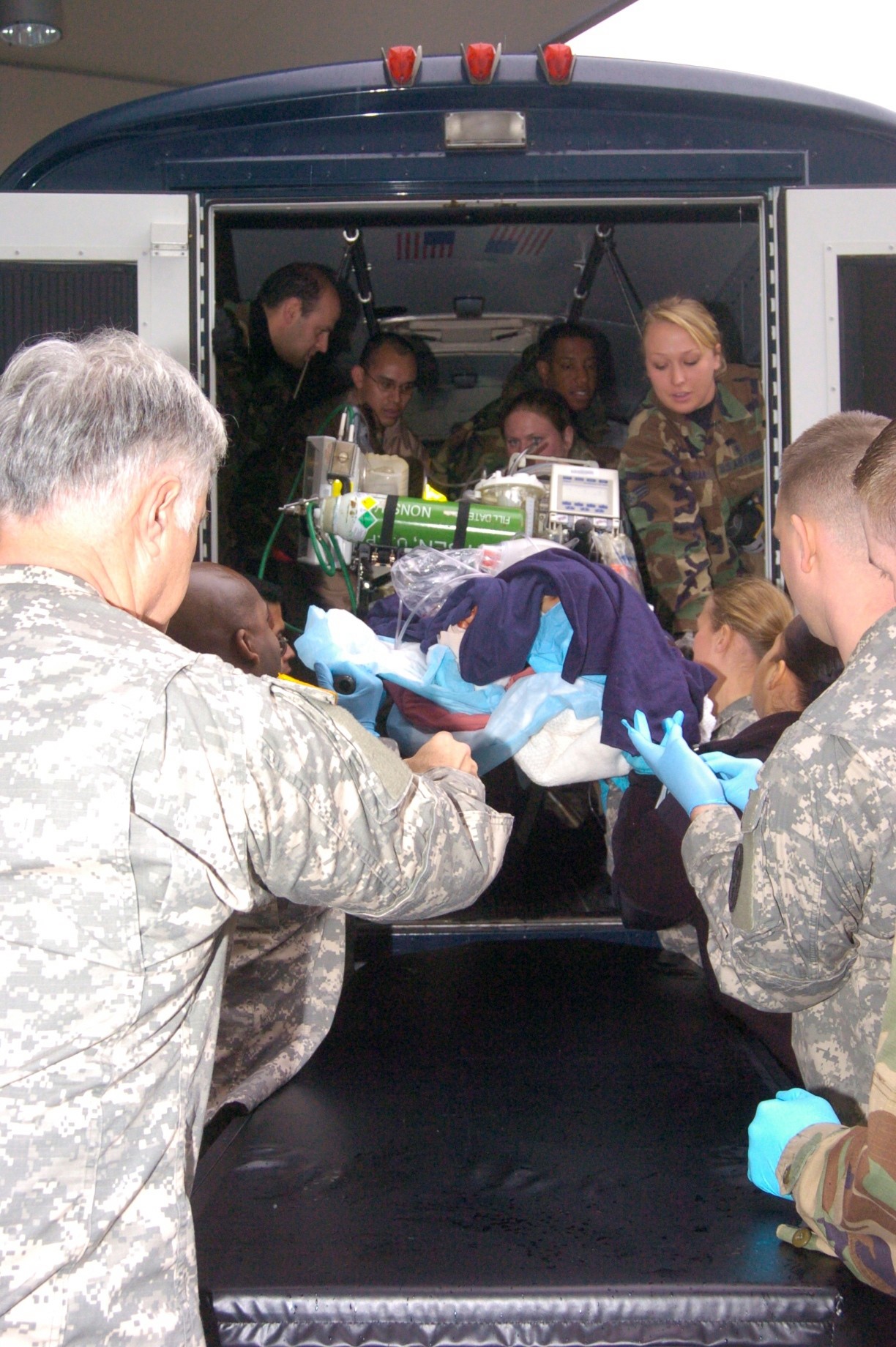The majority of wounded warriors arriving at Landstuhl Regional Medical Center reside at the Medical Transient Detachment while receiving care.
While at the MTD, servicemembers are medically assessed to determine whether they can be treated and returned to duty, or require more definitive care in the United States.
Although a patient's average stay is only eight days, Soldiers assigned to the MTD are focused on ensuring their wounded comrades receive the care and attention they deserve, said MTD Commander Capt. Katrina Gawlik.
"We're the stability for the warriors coming from downrange; we're the 'go-to' people for them," she said. Gawlik and her staff of 31 Soldiers and civilians help ensure that wounded servicemembers get to their medical appointments. They also assist with the patients' personal or administrative issues, such as contacting loved ones back home, resolving pay issues and acquiring new ID cards or uniforms.
"I like for them to leave here with the impression that someone was trying to take care of them," said Gawlick, who campaigned passionately for the commander's job because she felt it would allow her to make a difference in peoples' lives. "The special attention you give to one individual here or there can make a world of difference later on."
In 2007 some 5,000 wounded or injured servicemembers passed through the two former LRMC billeting buildings that were converted at a cost of $4 million when the MTD was relocated from Kleber Kaserne to LMRC.
About 30 percent of the patients are able to return downrange to finish their deployments, Gawlik said. Of the more than 46,000 patients treated at LRMC since 2001, almost 8,000 have returned downrange.
Capt. Marcus De'Wayne Murphy, an intelligence officer injured while deployed to Iraq, was grateful for the care he received at the MTD. His room included a TV, a DVD player, a computer with wireless Internet access, a microwave and a refrigerator.
As for the MTD staff, Murphy said he "couldn't ask for a better staff. You can talk with them about anything, from medical to personal issues, and they will listen to you and point you in the right direction and take care of you. Anytime I needed something, the staff took care of it."
That staff includes Sgt. 1st Class David Price, who can include Murphy among the wounded warriors he has taken home to dinner with his family. Price said that he has always been taught that if you take care of the Soldier, the mission takes care of itself. But at the MTD the old adage takes on a special meaning.
"Taking care of these guys is a great honor for me. I enjoy interacting with them every day," he said.


Social Sharing